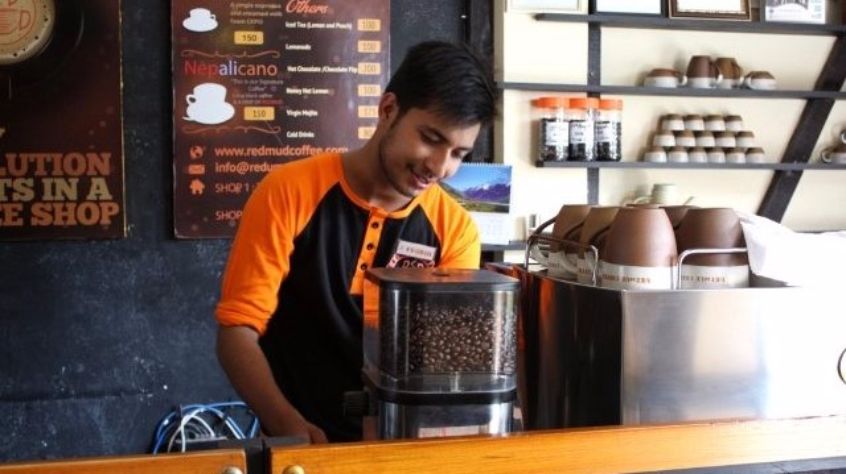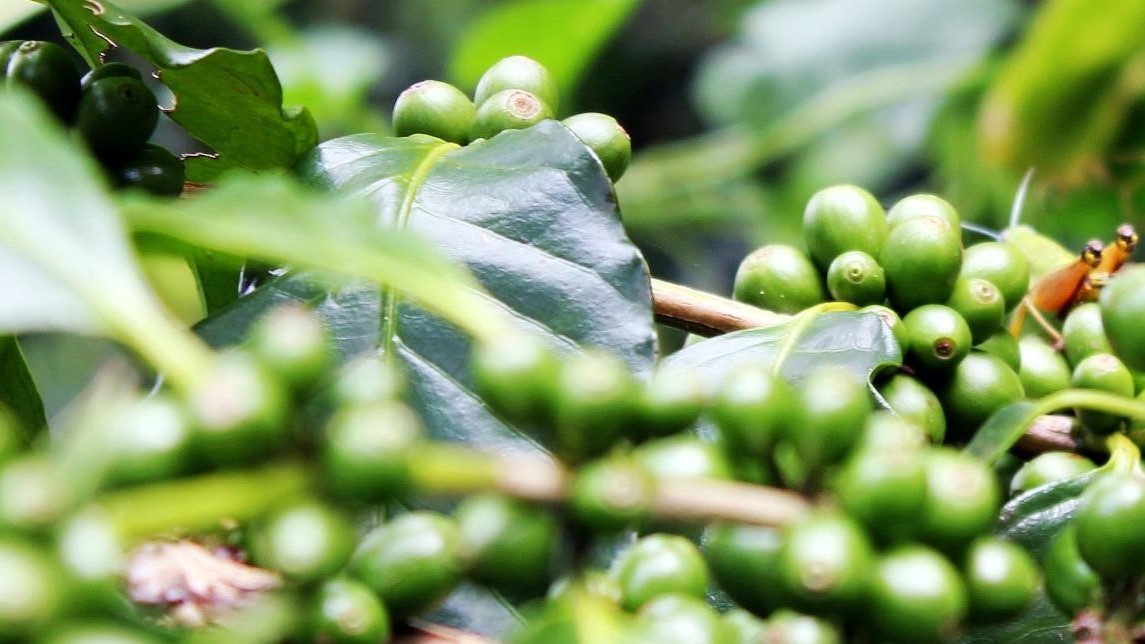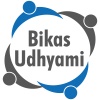SOCIAL ENTREPRENEURSHIP BLOG SERIES ISSUE NO. 6: Redmud Coffee - A brand built on its roots
Aashish Adhikari, the founder of 'Redmud Coffee' is among the most successful young entrepreneurs in Kathmandu Valley. He owns his own coffee brand, sells it abroad and runs his own chain of coffee shops. In his own words, he is cultivating the habit of drinking coffee among Nepali people. This interview uncovers the story behind his journey.
How you define the thing that you are doing?
Despite having answered this question many times, it is still challenging to answer this question. I own a coffee brand named ‘Redmud Coffee’ and sell it here as well as abroad. I am taking the initiative to promote our own coffee in our own name and bring it to our own people to sip.
When did you decide to start your business?
I was in the U.S. eight years back. I was in a dilemma for two years what to do and where to go. Many suggested me to apply for a Green Card, but that was never my intention. Working as an employee in many places, I tried to find job satisfaction, but never found it. I wanted to do something new, but I didn’t know where to begin and what to do. Then without any plan, I returned back to Nepal. Started a business named ‘Dignity dot.com’. I used to produce T-Shirts with my own prints, but that too didn’t last long and I dropped it after six months.
Then, seeking new ideas, I went to Pokhara where one of my friends had recently started a coffee shop. After talking to him, I saw good potential in coffee and started a coffee wholesale in Kathmandu. However, as a new guy without an established market, nobody believed in me. I was just able to send some samples abroad. Now, I believe that this laid the foundation for my business idea as I taught me to understand what the actual demand for coffee in the market is.
Then I started a coffee shop at the Trade Tower in Thapathali in 2012. Though I failed to sell the 3000 kg I used to sell as a wholesaler, I was happy because at least I was able to sell 300 kg as a coffee shop. This early investment of around 20-22 lakh brought me to where I am now.
How did you come up with the name? How is important is branding?
I visited various coffee shops around Kathmandu valley and found two common factors i.e. the tag "Himalaya" or "beans". I wanted to try something more unconventional. I am from Kavre district where my ancestors lived. It is in the Hills, so I know how the mud functions and what it is that coffee plants enjoy the most. In Nepal, our most fertile mud for coffee is red and therefore I incorporated my roots into the branding. I have always believed that branding is about the statement of our products. The brand carries our geography, hence a good brand makes a country famous. However, in Nepal, we are not brand conscious. When I was in London last time, they were selling Sikkim and Darjeeling tea, whereas a large portion of this tea is exported from Nepal. Our tea is sold as an Indian brand abroad. So why can’t we do that ourselves? Branding is a kind of story to which every individual in the world should love to listen. Unless we create our brand, we cannot tell our story.
How were the early years of running your business?
There are always new challenges arising. We have four stores and three seasonal stores. Still, it is the same. The type of struggle evolves, but it remains the same somehow.


How is your business creating social impact?
In Nepal, there is a tendency to rely on aid, but it supports you only for a temporarily. It just gives momentary progress, but investment provides long-term economic benefit. I am proud that startups like us too contributed to Nepal’s recent growth rate increment of 7.5 percent. We started with two people and now have 77 staff working with us. This is definitely creating social impact. We are happy to be the part of their progress.
We process 1 to 1.5 tons of coffee every year, which means many farmers are attracted to coffee farming. We pay them a good price. I frequently visit them and ask what I could do to make things easier for them. The money we make here also goes back to our own coffee producing belts in Nuwakot, Sanjya, Palta, Gimdi, Lalitpur etc. Big international projects started them, helped people to harvest coffee and we are giving them a market. They have now believe that, if they produce, they will get a market. We are giving them our own Nepali branded name.
Last year, I went to Sanjya, where one person named Gangadhar Adhikari, who started his coffee firm with the help of JICA. He had 50-60 coffee plants, but now seeing the market he is thinking of adding 200 more. Before farmers were delivering to international companies, now we Nepali too are their consumers.
Farmers can’t do branding and marketing and we can’t produce coffee. So the gap has to be fulfilled by someone like us. Dhakeshwor Ghimire, who was the President of the Nepal Coffee Producers Association had a dream to have his own brand. And he hoped his son would do that for him, but he went abroad. Now I am fulfilling his dream and he is fulfilling mine. I am providing a market for his products, he is providing coffee to my market.
Are you involved in any other social engagements?
Yes, from our part we are conscious about the career progress of people who are working with us. We have collaborated with the Young Thinkers Society and worked with their youths during the earthquake. Not only this, we frequently organize campaigns like giving free barista training to 10 underprivileged youths and employ 5 out of them. From our first batch, 2 people are still with us. They are now the store managers.
We also worked with Maiti Nepal. Two girls who are packing Momos for us were taken from high-risk areas to human trafficking with the help of Maiti Nepal. Three other guys who worked with us started their own business, which is now progressing well.
I am also enticing people who have land to consider using it for coffee farming.
How did Rockstart (An accelerator program that helps startups to be more successful) promote you?
The success I have achieved is due in large part to the contribution made by Rockstart. They changed the way I used to think. Previously, my plan was to start as a coffee vendor as well as to have my own coffee firm. However, they pushed me to take coffee farming out of my business model. I was in their first batch and they gave me various insights. They helped me to refine my business model and develop it further.
How can others benefit from Rockstart?
It is an initiative supported by ‘One to Watch’, a team from the Netherlands. They themselves come and support. To apply for their support, a business has to be established at least for two years. It should not be in the idea phase, rather it should have created a customer base already. They only give a platform to those who have a track record. I already had build my customer base before applying and was the first person to receive their support.
What are your recommendations to those who are think of starting their own business?
The one and the only thing I can say is to be ready with a proof of concept. Anyone can dream and create a concept, but you will get funds only when you have proof. You have to prove, be it at a small scale, that your idea works. Sell and show at 300 square feet, then you can aim for 3000 square feet. Nowadays, ideas only won’t be funded. Proven track record or concept is what attracts investment.
Be ambitious, but never be disappointed. To reach a certain level, you have to work hard at the beginning. I used to think 100 customers per day as being the highest attainable, but nowadays we have 500 to 700 customers on average. So gain experience and learn how to deal with failure, because you will be repaid in the end.
Eager to drink a cup of 'Redmud Coffee' after reading this interview? Visit https://redmudcoffee.com/ to find your nearest outlet!






